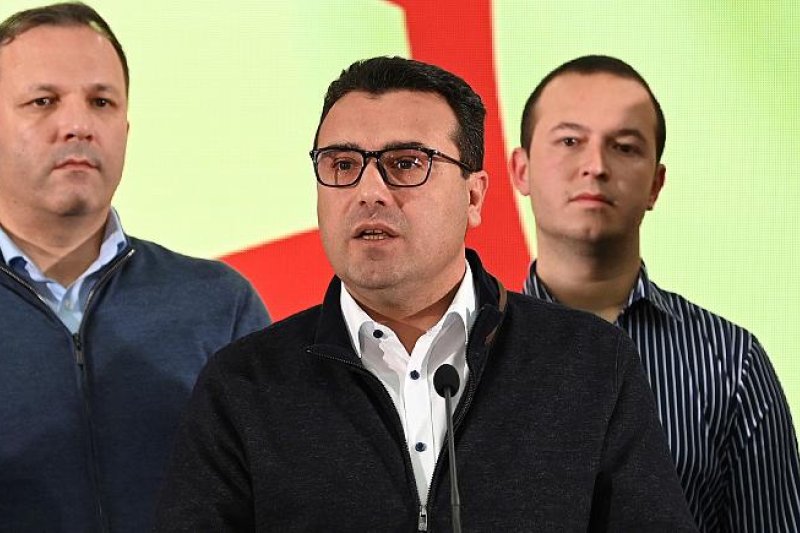North Macedonia’s Prime Minister Resigns after Local Election Results
North Macedonia’s prime minister has announced his resignation following the heavy defeat of his governing Social Democratic Union in the country’s local elections.
Zoran Zaev told a news conference at the party headquarters on Sunday night: “The responsibility for this outcome is mine and I’m resigning as prime minister and as leader of the Social Democratic Union.”
Although official results were not yet in from the local elections, Zaev conceded defeat in the most important contest - the mayor’s race in the capital, Skopje.
Incumbent Petre Shilegov lost to a center-right backed challenger, Danela Arsovska, who will become the capital’s first ever woman mayor.
Candidates supported by the main opposition party, the center-right VMRO-DPMNE, appeared set to win at least half of the country’s 80 municipalities, with the Social Democrats on course to win fewer than 20.
At the last municipal elections, in 2017, the Social Democrats won 57 contests and VMRO-DPMNE only five.
Official results were expected later on Monday.
Zaev came out against early national elections, saying he will support a Social Democrat-led government under a new leader.
Hristijan Mickoski, the leader of the center-right main opposition party VMRO-DPMNE, called for an early parliamentary election to be held.
“The governing party is now de-legitimised, and this is a new reality. The best way now is early elections,” Mickoski said, after declaring victory in the local election.
The last national election was held in July 2020 and a new one does not have to be held until 2024. But everything will now depend on the country’s Parliament.
Under the country’s constitution, the Parliament has to vote to accept Zaev’s resignation, and that is not a given. The governing coalition has a small majority, with 62 seats in the 120-seat Parliament — 46 from the Social Democrat-led “We Can” coalition of 23 parties, 15 belonging to the country’s largest ethnic Albanian party and one from the Democratic Party of Albanians.
VMRO-DPMNE leads the “Renewal” coalition of allied small parties, which has 44 seats, while the Alliance of Albanians has 12 and the fiercely leftist and nationalist Left party has two seats.
If Parliament does accept Zaev's resignation, negotiations would begin to form a new Cabinet under a different Social Democrat leader and that could be protracted.
This is the first time in North Macedonia’s 30-year history that a prime minister has resigned after a defeat in local elections.
During his first term, which lasted from 2017 to 2020, Zaev resolved a long-lasting dispute with Greece over the country's name. Greece said the original name of “Republic of Macedonia” and certain clauses in the country’s constitution implied territorial claims on Greece's northern province of Macedonia.
Under the agreement achieved with Greece’s then-leftist government in June 2018, the country changed its name to “North Macedonia” — although its citizens are called “Macedonians” — and amended its constitution in exchange for Greek support for the country’s efforts to join the European Union and NATO. North Macedonia became NATO’s 30th member in March 2020.
Greece’s now governing center-right New Democracy party, which opposed the agreement with North Macedonia, has committed to abide by it, but VMRO-DPMNE still strongly opposes it.
While in power earlier, VMRO-DPMNE claimed connections with the ancient Greek kingdom of Macedonia and erected a giant statue of Alexander the Great in the capital of Skopje, even though ethnic Macedonians are Slavs descended from people who came to the region centuries after Alexander.
Zaev’s government and the just-defeated mayor of Skopje, took down the statue and other ancient Macedonian symbols.
(Source: AP)













